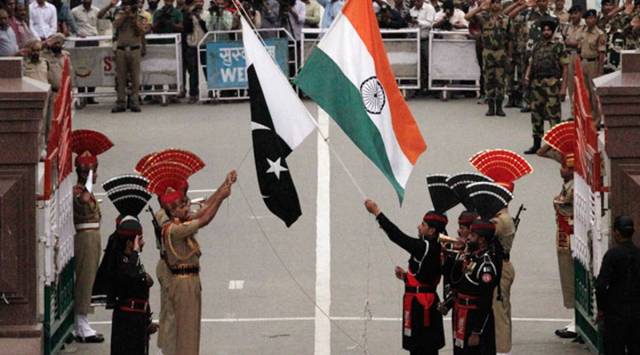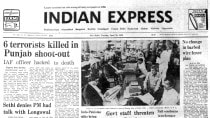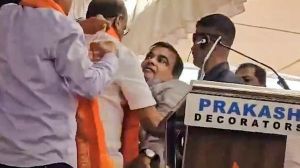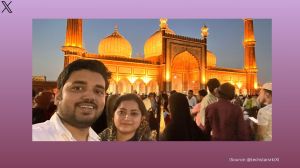- India
- International
Predictable tragedy of Partition
Both India and Pakistan lost out when the Subcontinent got divided in 1947
 The memories of those days still mark the social behaviour, political judgements and sense of morality of everyone in the region
The memories of those days still mark the social behaviour, political judgements and sense of morality of everyone in the regionHad my maternal grandmother Amjadi Begum not put her foot down and asked her two daughters, Nazuk Jahan Begum (my mother), Qaisar Jahan Begum (my aunt) and a son, Mohammed Ali Khan (my uncle) to stay put in India during the turmoil, chaos and confusion of the Partition, I would have been a student of Habib School in Karachi, Pakistan Shipowners’ College, Karachi, or Aitchison College, Lahore.
According to my mother, Nazuk (died 1986) and aunt Qaisar (died 1994), the Partition was the single most traumatic event of their time. The violence it unleashed was unprecedented and barbaric. The memories of those days still mark the social behaviour, political judgements and sense of morality of everyone in the region, according to them. However, they stuck to their homeland in the spirit of this couplet: “Jo chala gaya usey bhool ja/ Hind ko apni jannat bana!” (Forget all those who had left/Repose your trust in India).
The Partition stories narrated to me by my aunt and mother testified to the irrational passions that erupted so violently amongst the Hindu and Muslim communities at that time. People forgot their humanity, religious faith and cultural pride to stalk and kill each other. Aunt Qaisar would often wonder: “Why were they tempted by the cowardice of the killer, the ravings of the religious fanatic and the frenzy of the mob? Why did the light of reason, decency and piety, which had guided their struggle against colonial rule and given it dignity, fade so suddenly?” Nevertheless, she loved India for its secularism and safety.
Aunt Qaisar, a brilliant woman with a triple MA in Economics, History and Urdu from the Aligarh Muslim University and Delhi University, had got an invitation from Radio Pakistan to work as its director. Tempted by the offer, she went there with her elder sister, Nazuk Jahan, only to be disillusioned by the fact that people saw her as a muhajir (refugee). She had lost her father Ahmed Nabi Khan, a cavalryman in the British army, and had to look after her mother and elder sister Nazuk (later my mother). Her mother had, meanwhile, suffered a fracture. Finally, Qaisar Jahan didn’t want to take a chance in a newly created nation leaving the cozy warmth and safety of Delhi, her hometown. The sisters returned safely in a Dakota airplane.
It was a rare feat for Qaisar Jahan to have studied so much since Muslim women weren’t even allowed to peep outside their houses in those days. Later, she was selected by Fatima Begum, second of the three sisters of Maulana Azad, for his only nephew Nooruddin Ahmed as his prospective bride. The condition Maulana Azad laid down was that she shouldn’t work after marrying Nooruddin. However, Qaisar Jahan wanted to work as an Economics lecturer at IP College, Delhi. Nooruddin, later, married her elder sister, Nazuk Jahan Begum.

My mother and aunt always kept themselves informed about what was happening around and read The Statesman for news. They defied the Muslim League and supported the Congress as the nationalist, Maulana Azad, was their political hero. They supported Azad, who would say, “Water cannot be cut in twain!” But it was cut and there were terrible riots.
Qaisar Jahan would discuss the man who was put in charge of the Partition by the British — Cyril Radcliffe. Radcliffe had never been to India and was given little time to implement the Partition plan. He worked with outdated maps and census figures. The Radcliffe Line, as it is known, became the border between India and Pakistan. “The British simply didn’t want to get their hands dirty in this business of keeping Indians from going at each other’s throat with the result that the British military did not actually try to prevent people from massacring each other or abducting each other or taking possession of property,” my aunt would say.
My mother would describe the gory sight of trains with mauled, murdered, mutilated and dead bodies. On both sides of the Radcliffe Line, huts, houses, bungalows and mansions were burned and robbed, women were raped and murdered, children were killed in front of their parents and siblings. Some women jumped into wells and rivers while men killed wives and daughters as part of honour killings. Trains carrying refugees between the two new nations arrived full of corpses — their passengers had been killed by mobs en route. These were called “blood trains”. All too often, they crossed the border in funereal silence, blood seeping from under their carriage doors. Women, especially, were used as instruments of power by all communities. My maternal grandmother, Amjadi Begum, would tell others that the Partition of India left both India and Pakistan devastated.
Hindu revivalists also deepened the chasm between the two nations. They resented the Muslims for once ruling India. They also wanted to change the official script from Persian and Urdu to the Hindu Devanagari, effectively making a case for Hindi instead of Urdu to be the national language.
Muslim revivalists on the other hand looked for a new El Dorado in the form of Pakistan. They thought that migrating there would provide them a life on a bed of roses. My aunt, believing in Maulana Azad’s political stance, predicted that the Muslim League’s experiment would fail — and it did. Partition turned out to be a damp squib.
Pakistan’s founder, Mohammed Ali Jinnah, said the goal of a separate Muslim state should be peace within and peace without. That goal has proved elusive in the past 73 years. Qaisar was almost allergic to Jinnah and coined the title: “Qatil-e-Azam” (With due apologies)! My mother and aunt believed that Pakistan, created as a result of religious frenzy, would be a failed experiment. A prophecy that came true though they were quite concerned for the prosperity of Pakistan like Maulana Azad. When a Daily Telegraph journalist asked for his views on Pakistan, Maulana Azad had said: “Now, though against my wishes, Pakistan has come into being, I wish that it flourishes and progresses and considers India as its elder brother.”
The writer is the chancellor of Maulana Azad National Urdu University
EXPRESS OPINION
More Explained
Apr 24: Latest News
- 01
- 02
- 03
- 04
- 05










































